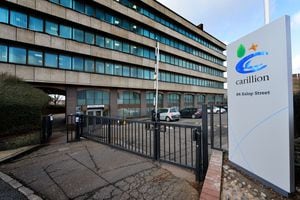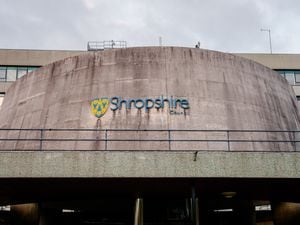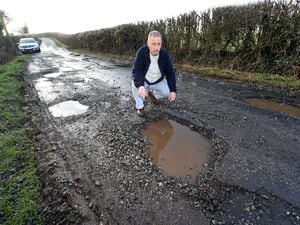Auditing firm KPMG ordered to pay £18 million for its role in collapse of Wolverhampton-based Carillion
An auditing company has been ordered to pay more than £18 million for its role in the collapse of West Midland-based giant Carillion.

KPMG will pay £18.35 million over the potentially conniving behaviour of some of its former staff when they reported to regulators on their audit of the outsourcing firm Carillion, which once employed 600 people at its headquarters in Wolverhampton.
The Financial Reporting Council also kicked four of the KPMG's former staff out of the Institute of Chartered Accountants in England and Wales for between seven and 10 years.
They had "made, or connived in or were knowingly associated with making, certain false or misleading representations," to the FRC's Audit Quality Review (AQR) team.
"The seriousness of the misconduct that we have found proved scarcely needs explanation," said a tribunal which heard the case.
"Effective audits are essential to the financial system. Management and investors should be able to rely on the audited financial reports of the company in question.
"The purpose of AQRs is to assess, and where appropriate suggest improvements to, the effectiveness of audits."
KPMG was fined £20 million, reduced to £14.4 million because it cooperated and admitted wrongdoing, and agreed to pay nearly £4 million in costs.
The four former staff members were fined a combined £365,000. A fifth member of staff was severely reprimanded.
The wrongdoing concerned "false and misleading information and documents" submitted on the audits of both Carillion, and Regenersis, a data company.
"Misconduct that deliberately undermines the FRC's ability to monitor and inspect the effectiveness of audits is extremely serious because it obstructs the FRC's ability to protect the public interest," said executive counsel Elizabeth Barrett.
"This case underlines the need for all professional accountants, regardless of seniority, to be aware of their individual responsibility to act honestly and with integrity in all areas of their work."
KPMG chief executive Jon Holt said: "I accept the findings and sanctions of the tribunal in full.
"The behaviour underlying this case was wrong and should never happened.
"We reported it to our regulator as soon as we uncovered it and we have cooperated fully with their investigation.
"Since then, we have worked hard and with complete transparency to our regulator, to assure ourselves that the behaviour of the individuals concerned does not reflect the wider culture of the firm."
Carillion went bust in January 2018, causing around 2,400 direct job losses and a huge knock-on effect to contractors across the industry.
It was based in Carillion House on Salop Street in Wolverhampton, which has since been taken over and refurbished to over 260 workspaces for firms in the region. The building had been on the market in 2018 for around £3 million before it was sold to Gupta Group for an undisclosed fee. The building, which overlooks Chapel Ash, was not owned by Carillion – they leased it for around £440,000-a-year since it was bought by a private investor in January 2016.
The union Unite is representing 263 members who are seeking compensation due to Carillion’s failure to inform and consult them before they lost their jobs when the company collapsed into compulsory liquidation.
Carillion fell into financial trouble because it slashed the value of contracts it bid for by £850 million. Carillion failed to persuade Balfour Beatty to agree to a merger in 2014 in subsequent years committed to contracts that did not bring the company a profit. The company had just £29 million in the bank when it failed, but owed billions in debt, pension deficits and unpaid bills to its supply chain.





